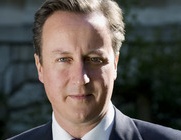UK PM Cameron wants EU support on migrant benefit curbs
29 Nov 2014
 David Cameron on Friday made an impassioned appeal to other EU leaders to support his "reasonable" proposals for far-reaching curbs on welfare benefits for migrants.
David Cameron on Friday made an impassioned appeal to other EU leaders to support his "reasonable" proposals for far-reaching curbs on welfare benefits for migrants.
According to the UK prime minister, lower EU migration would be a priority in future negotiations on the UK's membership to the EU and he said would "rule nothing out" if he did not get the changes he wanted.
According to his plans, migrants would need to wait four years for certain benefits.
Brussels said the ideas formed "part of the debate" to be "calmly considered".
However, according to the UK Independence Party (UKIP) leader Nigel Farage the PM was "behind the curve" on immigration, while Labour said Cameron had "no credibility" on the subject.
In a much-awaited speech in a factory in the West Midlands, Cameron said he was confident the basis of EU migration into the UK could be changed and therefore he could campaign for the UK to stay in the EU in a future referendum planned for 2017.
He warned however, that if the UK's demand fell on "deaf ears" he would "rule nothing out" - the strongest hint to date he could consider the UK leaving the EU.
Meanwhile, Cameron's pledge to cut immigration was in ruins after net annual migration jumped to over a quarter of a million.
According to official figures this morning net migration was up at 260,000 in the 12 months to June, as against 182,000 the previous year.
Ahead of the election Cameron promised a reduction of the figure from hundreds of thousands to tens of thousands and asked to be judged on whether he met the target.
Meanwhile, Cameron came under attack from his coalition ally, Liberal Democrat deputy prime minister Nick Clegg, for undermining public confidence in the immigration system by ''over-promising and under-delivering'' on the issue.
According to figures revealed yesterday net migration was now running at higher levels than the government inherited from Labour.
The figures would add to the pressure over immigration on the prime minister, who outlined proposals for limiting migration from the EU.
The bulk of the new arrivals were economic migrants from the EU – mostly from Eastern Europe as also Mediterranean countries – who had full entitlement to work in the UK.


















